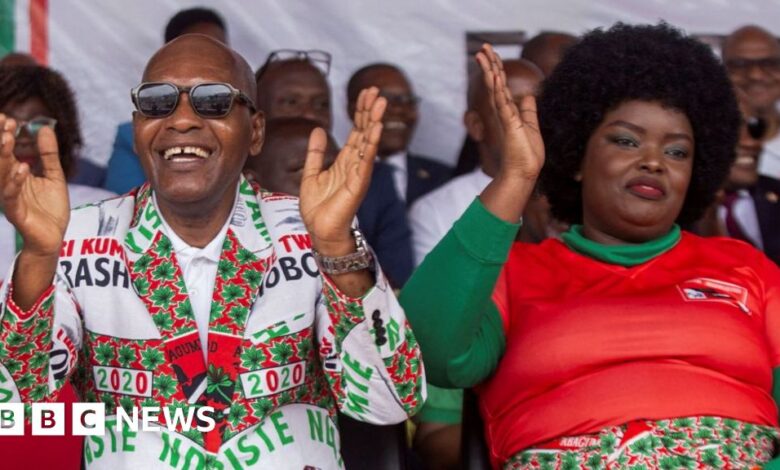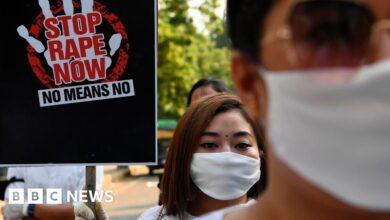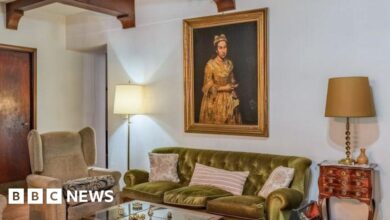Ruling party seeks to tighten grip on power

Voters in Burundi are heading to the polls amid a backdrop of surging inflation, fuel shortages and complaints of political repression.
Seats in the National Assembly, Senate and local councils are up for grabs but Évariste Ndayishimiye is safe in his role as president as he is serving a seven-year term that ends in 2027.
The elections will test the popularity of the governing CNDD-FDD party, a former rebel group which has been in power for the past 20 years.
The East African nation was already one of the world’s poorest countries, but residents there have been put under further pressure by a recent spike in the price of goods such as food.
Opposition parties have complained that their supporters have been harassed and intimidated by members of the CNDD-FDD’s youth league, the Imbonerakure.
Gabriel Banzawitonde, leader of the APDR party, said: ”People are so intimidated that they tell you they cannot wear any party colours other than the ruling ones’.
But he said they were not giving in and “once in the voting booth, they promise to vote for you”.
Several political analysts approached by the BBC declined to talk about the elections for fear of repercussions. One expert, who did not want to be named, said: “To avoid unnecessary trouble, you keep quiet.”
”We pointed out from the start that everything was being tailor-made [to fit the ruling party],” they said, suggesting that a CNDD-FDD win was a done deal.
Recently, some party officials have even been suggesting that a one-party system may be beneficial for Burundi.
Over the weekend, secretary-general Reverien Ndikuriyo told supporters that “to reach development, all countries started by having a single party”.
Even though this is not historically accurate, the president has also made similar claims.
“Yes, when it becomes single [the only party], we’ll reach development,” Ndikuriyo said.
However, he confusingly added: “‘Don’t let foreigners infiltrate you [and tell you] that the party wants to be single.”
Chronic shortages of foreign currency, which is needed for imports such as medicine and fuel, have led to a decline in Burundi’s economic activity.
Analysts say that Burundi now runs on less than one month’s-worth of foreign currency reserves for imports, while the regional standard is to have at least four months.
Queues of cars stretching from service stations for around 100m (330ft) have become a common sight. They often last for days or weeks as motorists wait for fuel, which is being rationed by the authorities.
According to the World Bank, the annual domestic income of an average Burundian in 2023 was $193 (£142), the lowest within the East African Community trade bloc.
Faustin Ndikumana, an economist and anti-corruption activist, believes Burundi’s situation will not improve any time soon.
”Good governance has to be established. We’re not there yet,” he told the BBC.
But the governing party and its leader hold an opposing view.
President Ndayishimiye has said residents of Bujumbura, Burundi’s largest city, “looked bad in 2005” but now “had money to buy shoes, new clothes and to build a house”.
And the CNDD-FDD often responds to criticism by reminding Burundians that the party fought for the Hutu ethnic group – who make up the majority of the population – to access power, after four decades of what they considered as oppression by the minority Tutsis.
https://ichef.bbci.co.uk/news/1024/branded_news/3a35/live/481479e0-4161-11f0-835b-310c7b938e84.jpg
2025-06-05 03:08:12





